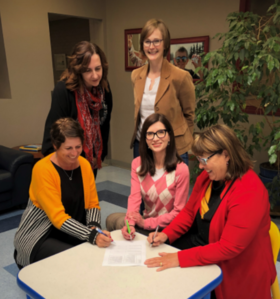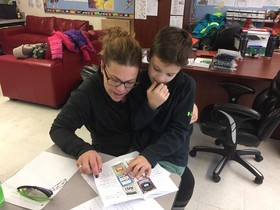RESEARCH HIGHLIGHTS
Currently, Suzuki Charter School is participating in a five-year research project involving a partnership amongst Calgary Arts Academy and the University of Alberta, and funded through a Social Sciences and Humanities Research Council (SSHRC) grant. This formal research explores relationships between teachers and students within the context of teacher feedback, and involving the Learning Errors and Formative Assessment (LEAFF) model. The LEAFF model is a learning and assessment model that provides simple and inclusive teaching practices to improve student-teacher engagement.
An overview of the project follows:
Human beings have the capacity to learn and live meaningfully when their social and emotional needs are met. Social needs include feeling connected and understood by other human beings. Emotional needs include feeling safe and in control. The rational, cognitive human brain evolved after the basic socio-emotional brain. Social and emotional needs prevail and must be met in childhood to support learning goals.
Research indicates that approximately 60% of Albertans (and this is reflected in larger populations as well) will experience some form of serious childhood adversity with the potential to derail health and learning. The challenge for educators is of standing behind the curve instead of being in front of it - waiting for a child’s socio-emotional compass to go off-kilter before helping and intervening. Educators must be supported in finding ways to detect and prevent the off-balancing of social-emotional compasses.
Research literature shows that many educational testing companies are seizing on the need for socio-emotional support and marketing diagnostic assessments and interventions for children and adolescents presenting behavioural problems. Although these assessment tools and interventions fill a need, most of these commercial tools have not been developed on a solid research base.
The objective of our SSHRC-funded research is to develop simple to use, evidence-based socio-emotional tools – curriculum materials, stories, assessments – that will complement and guide teacher-intuitions to help meet the socio-emotional needs of children in their math and science achievement. However, the vision for the project is larger - to develop a suite of engaging, simple and accessible, evidence-based tools to inform and guide parents and teachers in their pursuit of creating nurturing learning environments for children and adolescents. These preventive, research-based and tested tools could be promoted to parents, teachers, and schools in support of children and adolescents’ health and development as life-long learners.
Research Practise Partnership Newsletter Links


